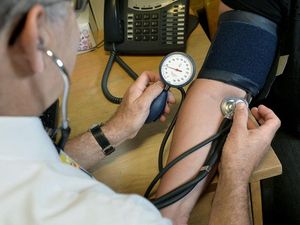Women’s blood vessels age faster than men’s, research suggests
The scientists say their findings challenge the notion that important vascular diseases in women lag behind men by 10 to 20 years.

Women’s blood vessels, including both large and small arteries, age at a faster rate than men’s, according to new research.
The US scientists say their findings challenge the notion that “important vascular diseases in women lag behind men by 10 to 20 years”.
Dr Susan Cheng, director of public health research at the Smidt Heart Institute at the Cedars-Sinai Medical Centre in Los Angeles, and senior author on the study, said: “Many of us in medicine have long believed that women simply ‘catch up’ to men in terms of their cardiovascular risk.
“Our research not only confirms that women have different biology and physiology than their male counterparts, but also illustrates why it is that women may be more susceptible to developing certain types of cardiovascular disease and at different points in life.”
The researchers looked at four decades of community-based data gathered from 32,833 study participants aged between five and 98.
They combed through nearly 145,000 blood pressure measurements, a key indicator of cardiovascular risk, and conducted sex-specific analysis.

They found the progression and evolution of women’s vascular function to be very different than that of men.
Dr Cheng said: “Our data showed that rates of accelerating blood pressure elevation were significantly higher in women than men, starting earlier in life.
“This means that if we define the hypertension threshold the exact same way, a 30-year old woman with high blood pressure is probably at higher risk for cardiovascular disease than a man with high blood pressure at the same age.”
Dr Christine Albert, founding chair of the department of cardiology at the Smidt Heart Institute, said the findings demonstrate that results from studies performed in men may not be directly extrapolated to women.
She added: “This study is yet another reminder to physicians that many aspects of our cardiovascular evaluation and therapy need to be tailored specifically for women.”
The research is published in the journal Jama Cardiology.





